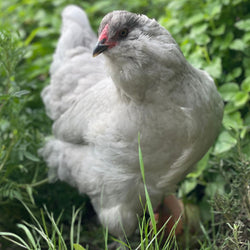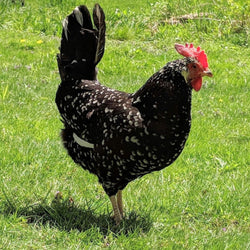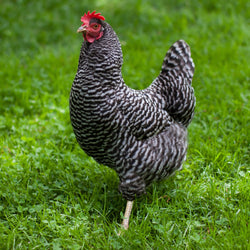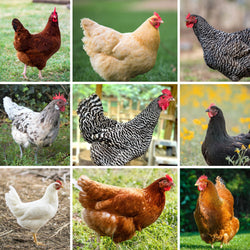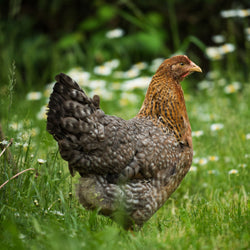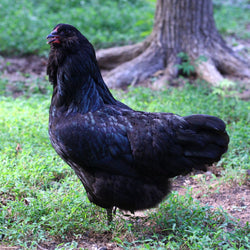page=55/--
Frequently Asked Questions
Here we answer the most commonly-asked questions about ordering, chicken care, and more.
What kind and how much feed should I give my flock at each stage of development?
As baby chicks and waterfowl grow, their nutritional needs change. It can be confusing to know how much and what kind of feed to give them at each stage of development. Please don't lose sleep over this issue! We have all the help you need for your growing chickens, ducks, and geese right here. One note before we get started: All feed manufacturers have recommended stages for their feed. This guide is a commonly accepted standard; however, you should follow the directions on the feed you choose for optimum benefit from that brand. Regardless of their age, one principle always...
Read MoreWhat do I need to know about raising chicks?
Educate Yourself Huzzah! You're here to learn about raising baby chicks, which is more than some people do! (You'd be surprised...). This is a condensed form of our full baby chick care guide, which you can find here. Make sure you'll have enough time. Raising baby chicks requires frequent care and monitoring, so make sure your schedule allows you or a family member to check on your chicks around five times a day. Brooder setup The "house" you raise your chicks in is called a brooder. Your brooder setup is the one of the most important aspects...
Read MoreWhy won't the U.S. Government shut down the Agricultural sector during the COVID-19 outbreak?
We know you all are worried about feed stores shutting down, and not being able to feed your chickens. You shouldn't be, though. Even as various states shut down different types of businesses and ask people to shelter in place, the U.S. Department of Homeland Security designates the Food and Agriculture industries as critical infrastructure. Presidential Policy Directive 21 (PPD-21) classifies agriculture as one of sixteen critical infrastructure sectors, "considered so vital to the United States that their incapacitation or destruction would have a debilitating effect on security, national economic security, national public health or safety, or any combination thereof."...
Read MoreCan I get Coronavirus (COVID-19) from my chickens?
Here's what the CDC says about COVID-19, as of November 2021: The risk of animals spreading the virus to people is low; the virus can spread from people to animals during close contact. More studies are needed to understand how different animals could be affected by the virus; people with the virus should avoid contact with pets, livestock and wildlife. The CDC also recommends that since all animals can carry germs that make people sick, that you should follow these healthy habits when you're around pets and other animals: Wash your hands after handling animals, their food, waste, or supplies....
Read MoreCan I keep just one chicken?
Yes - you can keep just one chicken, but the question is, should you? Keeping one chicken may sound like a great idea to us humans, but is it a good idea for the bird? When considering bringing a member of another species into our care, it is important to think about not just what makes us happy, but what is best for the animal as well. In the case of chickens, living in a flock with members of their own species is what their instincts are honed to expect, and that situation seems to be best for their well-being....
Read MoreCan I return feed or food products?
Feed and food products cannot be returned due to biosecurity reasons.
Read MoreHow many chickens should I get?
We'd like to answer this question, "dozens and hundreds!" because keeping chickens is so wonderful--but for the health and safety of the birds (and the financial and psychological well-being of our customers!) it's best to actually plan and strategize before you start your flocks. In light of that, here are some factors to consider when deciding how many birds to get: The social needs of chickens Chickens are flock animals that interact with on each other in various ways including dust bathing, grooming, broodiness and sharing egg boxes, chick-raising, warmth, protection, and perhaps even chicken friendship. Because of this, it's...
Read MoreHow can I tame ducks and geese?
As prey animals, ducks and geese are concerned about any potential threat, including you! Since we are large, threatening creatures with forward-facing eyes, waterfowl assume humans are predators (a valid assumption in many cases) and they are understandably wary about coming close to us. This natural fear has protected them for millions of years, and it's something you'll have to work to overcome if you want your ducks and geese to be tame enough to trust you, come to you, and potentially even eat out of your hand. As you work to tame your waterfowl, it is important to remember...
Read More







"The Clubhouse" Coop
Easy to assemble and built to last, the Clubhouse Coop is the perfect starter coop for a small flock.


